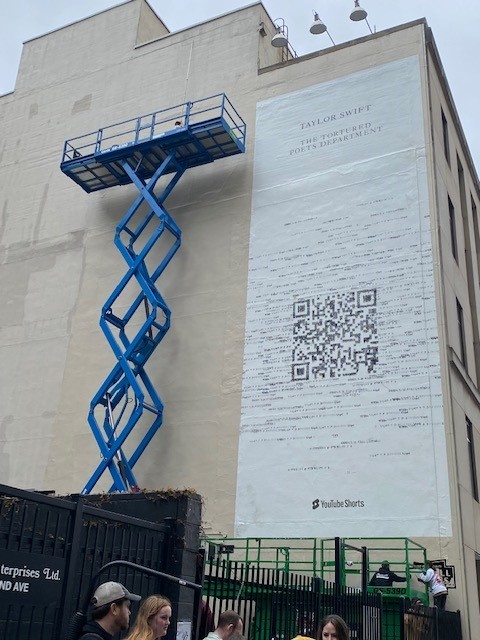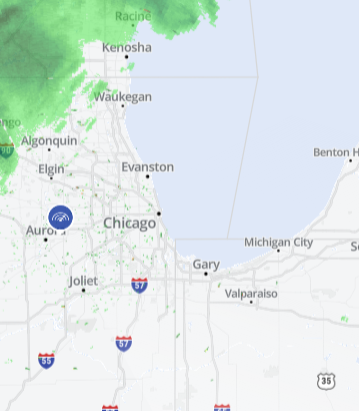Despite the fact that 2013 has so far marked a decline in Chicago’s violence numbers, the city spent much of the year in the spotlight of a national gun violence debate.
The city’s violence was thrust into the limelight after 15-year-old Hadiya Pendleton was gunned down in January just days after performing at President Barack Obama’s inaugural ceremony.
Pendleton, whose death captured headlines around the country, was the unintended target of a gang-related incident. Two men charged with first-degree murder admitted they thought they were shooting into a group of rival gang members.
She was shot to death blocks from her school and about a mile from the President's and First Lady's Chicago home.
Pendleton became the face of Chicago’s gun violence, and her named was mentioned in Obama’s State of the Union address, in a number of hearings on gun bills and even in a speech by Chicago rapper Lupe Fiasco.
Pendleton’s story was echoed throughout the city as dozens continued to fall victim of the city’s gun violence in the following months.
Chicago began the first week in January on pace to beat 2012’s total of 516 people killed and maintain the title of America’s “murder capital.”
In the first six days of this year, 12 people were murdered in Mayor Rahm Emanuel's Chicago. That’s two ahead of last year’s six-day total.
As the city neared summer months, concern continued to grow.
Local
A 6-month-old baby was shot to death while her father was changing her diaper March 11.
Jonylah Watkins had several surgeries but ultimately died of multiple gunshot wounds after a shooter fired at her father over a stolen video game console.
At least three people were killed and 20 others were injured over Memorial Day weekend.
But Chicago ended the month of May down four murders from May 2012, an eight percent decrease, according to Director of News Affairs Adam Collins.
Police Superintendent Garry McCarthy attributed the decline to a comprehensive policing strategy that includes a return to community policing, gang violence reduction, narcotics targeting and a close partnership with the Chicago Police Department and the community.
Shortly after, the number of gun violence victims exploded as Chicago celebrated the Fourth of July holiday weekend.
With 72 people shot, 12 of them fatally, the Windy City’s murder capital status appeared to have been reinforced yet again.
At the start of September, Chicago Police maintained the notion that the city’s violence was declining.
Despite a violent Labor Day weekend, city marked its lowest murder rate since 1965 and has made progress since notching 500 murders in 2012.
Seven people were killed over the long weekend and about a dozen injured, but police said Chicago shootings are down 22 percent year over year, and murders are down 23 percent.
"Everybody said it's the third quarter during the summer that's really going to measure how we're doing," Supt. Garry McCarthy said, "and in June we were down in shootings and murders, July the same thing, and in August the same thing."
Last year's Labor Day weekend saw 24 people injured and two killed in shootings across the city.
McCarthy said officials are battling Chicago's image as murder capital and "we're struggling with perception."
Shortly after McCarthy's statements, that “perception” was reinforced as Stephen Colbert compared Chicago’s gun violence to violence in the Middle East.
Colbert said Assad is "killing his own people with chemical weapons. Before he was just killing them with bullets. But if America cared about shooting people, we'd be invading Chicago."
And former Secretary of Defense Donald Rumsfeld compared the current violence in Iraq to violence on Chicago's streets.
But the city reached new heights on Sept. 20 when 13 people, including a 3-year-old boy, were shot in a city park.
McCarthy said an assault style rifle with high capacity magazine was used in the shooting.
"It’s a miracle in this instance there were no fatalities,” he said at a press conference on Friday.
At least seven people have been charged in the shooting so far.
But the city's declining numbers were once again reinforced with a November that saw fewer murders than 2012. In fact, Chicago police say the city could end the year with the smallest number of homicides since 1965.
McCarthy called the month “one of the best [Chicago] has had.”
“We know that last year was not a good year,” McCarthy said. “But if you look at these numbers historically, 2011 was the best year that we’ve had since 1965. We’ve got more than 450 less shooting victims in comparison to 2011...We’re getting close to finishing the calendar year and we’re making a lot of progress.”



